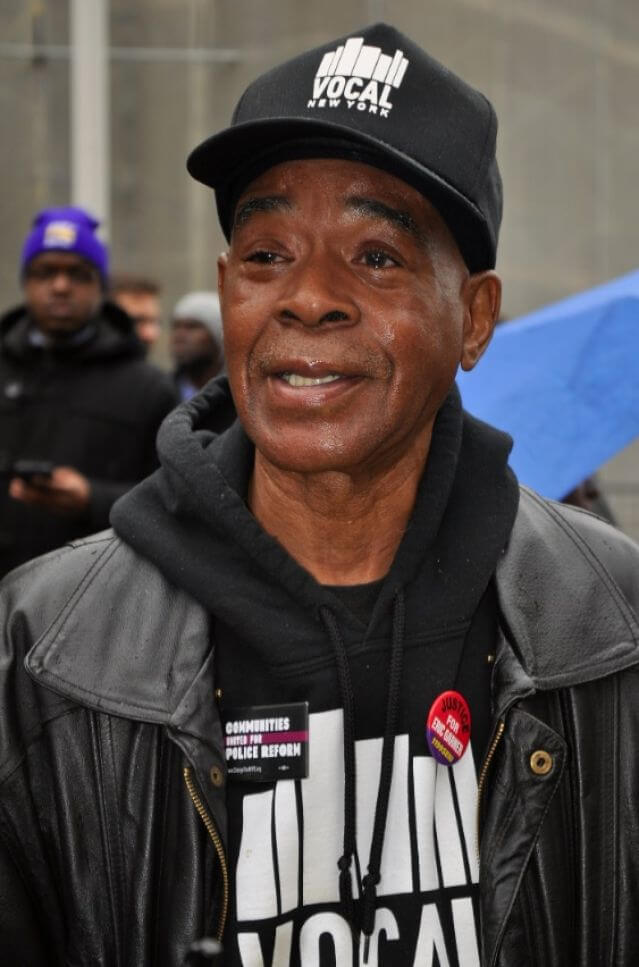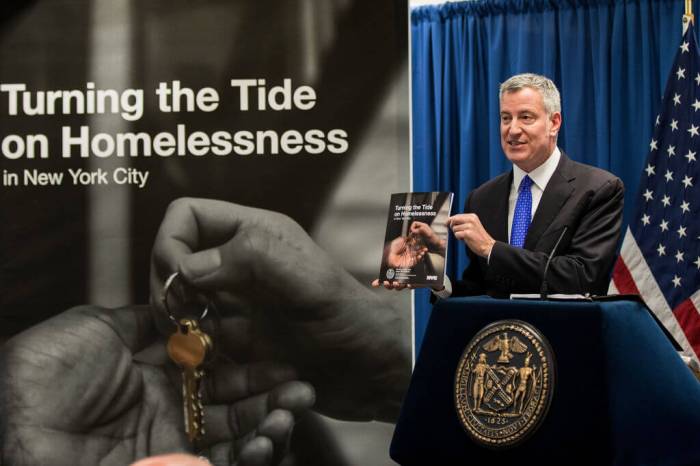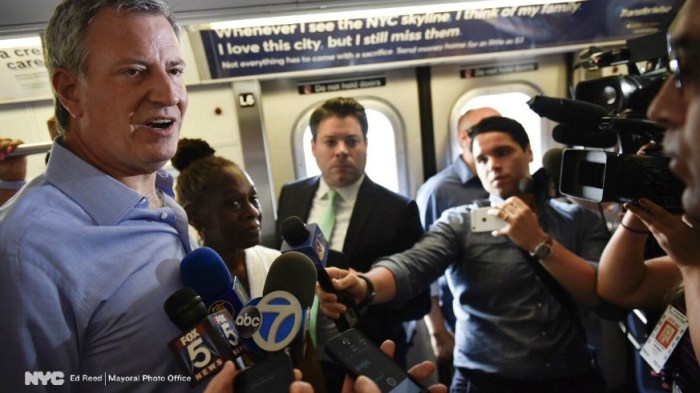Starting Tuesday, New Yorkers applying for jobs won’t initially need to disclose if they’ve previously been convicted of a crime.
The Fair Chance Act, which was introduced in City Council in 2014 by Council Member Jumaane Williams, passed by the council in June and signed by Mayor Bill de Blasio in late July. The law, which the city said “strengthens provisions of the City’s Human Right Law,” allows employers to conduct a criminal background check only after they make a conditional job offer to a prospective employee. RELATED: City Council bans the box and passes Fair Chance Act
De Blasio said at the signings the “bill opens the door to jobs for New Yorkers who have already paid their debt to society, rather than condemning them to a grim economic future.”
The law bans employers from listing “background check required” in job postings, or ask whether an applicant has been convicted of a crime during the application process.
RELATED: Council bill would help ex-cons land employment
Alyssa Aguilera, political director at VOCAL-NY, said the “far reaching bill” applies to every employer in New York City with more than four employers, and that an estimated 2.5 million people in the city have a criminal record. “This impacts a lot of folks and is really going to have a significant change in how people find work,” Aguilera said. “It’s more than banning the box, they [employers] can’t put in the job posting, ask during the interview process until the final final stages of the hiring process until they have all the information about the good things and qualification on merit of candidate. We think help people have a fuller picture who these applicants are with records.” RELATED: Keeping life on the straight and narrow
Aguilera said VOCAL members are excited about the new law, and the process might even streamline employment for employers, who might have to only one run background check instead of many if the candidate is a good fit. “Thisopens a huge opportunity for people with criminal convictions to ne evaluated on something other than their criminal records, only a part of who they are,” said Vivian Nixon, executive director ofCollege and Community Fellowship, which helps previously incarcerated women achieve college degrees. Kathryn Wylde, President and CEO of the Partnership for New York City told Metro that although she believes the act will make it more difficult on prospective employees and employers, the city’s Human Rights Commission is reaching out to employers for the first time and holding a session to make sure the new regulations are understood and followed. “We would have supported a “ban the box” statute that was less intrusive, with not as many hoops for the employer to jump through,” Wylde said. “What we appreciate is theHuman Rights Commissionsetting up a process.”
New York City has officially ‘banned the box’ for job applicants

Carlos Llamas, Metro


















